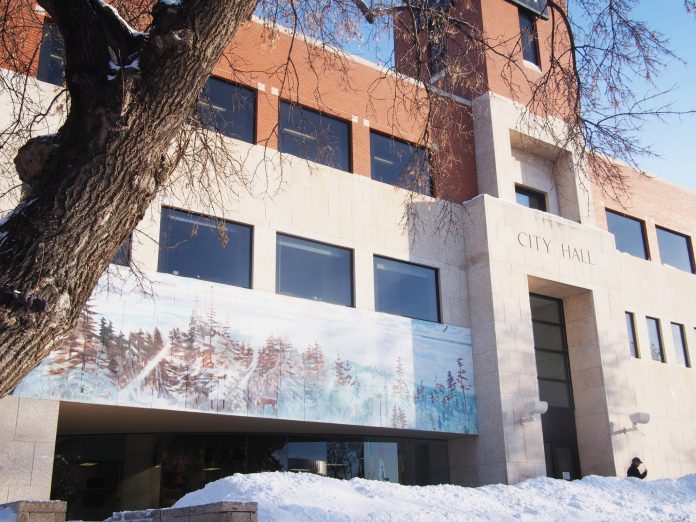SUMA has called on the provincial government to provide some relief to Saskatchewan cities feeling the pinch from PST charges on municipal construction projects.
SUMA Mayors’ Caucus Chair Gerald Aalbers says medium-sized Saskatchewan cities rely on Municipal Revenue Sharing dollars to complete infrastructure projects. However, between 24 and 39 per cent of those dollars end up covering PST.
“We truly appreciate the funding provided to our communities through programs like Municipal Revenue Sharing, but we are returning a significant portion of this funding through PST on municipal construction,” Aalbers said in a media release. “(That’s) funding that could instead be used to enhance municipal services, and limit property tax increases.”
Prince Albert received roughly $7.1 million in Municipal Revenue Sharing in 2021, but PST charges ate up roughly $2.8 million of that funding.
Ward 4 Coun. Don Cody represents Prince Albert on the SUMA board of directors. Cody said the City already faces tens of millions of dollars in extra expenses due to inflation. Having to pay PST on top of that, he said, has been devastating.
“You get a grant from the government, and then, they take it back by the PST. (It’s) wrong,” Cody said. “That just simply should not happen. I don’t think one government should be allowed to tax another.”
Cody said Prince Albert could put that $2.8 million in PST payments to good use. He said it’s especially frustrating considering Saskatchewan’s financial picture is looking good, while cities are trying to keep new developments booming.
In August 2022, the provincial government began handing out $500 cheques to residents making more than $1 billion from potash and more than $500 million from oil in the first three months of the year. The increase in revenue allowed the province to balance its 2022-23 budget.
“We’ve had windfall profits in the province by way of oil and commodities, and there should be no good reason whatsoever why we should have to take that on the chin when the province has money in the bank,” Cody said. “I would strongly suggest that’s one of the things they could certainly look at in their next budget, saying, ‘yup, we’ve decided we’re going to give you a break.’”
Cody added that the City of Prince Albert has asked the province for a PST exemption multiple times without success.
“It isn’t as though we haven’t put any pressure on them, but, I guess they’re the ones with the purse strings,” Cody explained. “They can pull them as tight as they want and they’re doing just that, which is unfortunate.”
The province has always collected PST on construction materials and supplies, but other areas were exempt. That changed in 2017, when the province expanded the PST to cover all infrastructure project costs.
SUMA raised concerns about the increase at the time. Aalberts and Dionne both said municipal budgets have gotten even tighter since then.
In an email to the Daily Herald, a Ministry of Finance spokesperson wrote that Saskatchewan municipalities received roughly $262.6 million in revenue sharing in 2022-23, an increase of 106 per cent since 2007-08.
When asked about a possible PST exemption on construction projects, the spokesperson wrote that three quarters of each PST point goes back to municipalities through Municipal Revenue Sharing.
“This is a very strong level of commitment from the Government of Saskatchewan,” the email reads. “(It’s) stable, predictable funding available to municipalities that is linked to the performance of the province’s economy.
The 2022-23 provincial budget included $448.5 million in support to municipalities.
The provincial NDP promised to remove the provincial sales tax on construction labour during the 2020 provincial election.
@kerr_jas • jason.kerr@paherald.sk.ca


